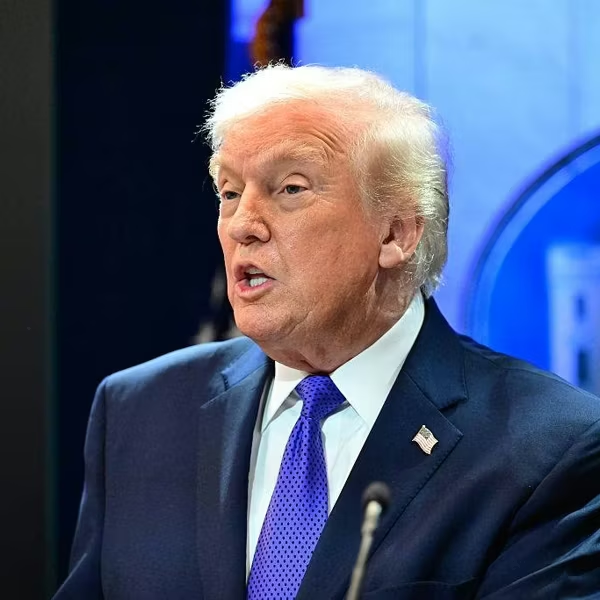Trade was a major theme in President Trump's campaign.
He repeatedly complained that our trade negotiators were stupid and therefore had negotiated bad trade agreements. These bad trade deals are the cause of our trade deficits, which have cost us millions of manufacturing jobs over the last two decades.
Trump made very specific promises to turn things around once he was in the White House. In "Donald Trump's Contract with the American Voter," his "100-day action plan to Make America Great Again" included two very clear trade-related promises:
"I will direct the Secretary of the Treasury to label China a currency manipulator" and "I will announce my intention to renegotiate NAFTA or withdraw from the deal under Article 2205.
As we approach the 100 day mark of the Trump administration, there is no evidence of progress in fulfilling either promise. Trump's failure to act on core campaign promises while he and his family continue to wheel and deal in the private sector raises questions about whether Trump is sacrificing the interests of his voters to the wishes of his business partners.
Trump's retreat on the currency issue with China has been dramatic. After meeting with China's President Xi Jinping earlier this month, Trump announced that there was no reason to press China on the value of its currency because it was helping the United States in dealing with North Korea. His Treasury department declined to name China a currency manipulator in its annual review.
While there are legitimate questions as to how China is now managing its currency (in the last year it has actually intervened to raise rather than lower its value relative to the dollar), Trump has essentially abandoned his commitment to force China to raise the value of its currency to make U.S. goods and services more competitive.
Without a change in the value of China's currency, it is very difficult to see how Trump could possibly make good on his promise to bring back the jobs we lost. It was always questionable how many jobs could be returned even if the dollar fell against the Chinese yuan. But if we don't even see the first step, there will be no progress in reducing our $300 billion trade deficit and increasing manufacturing employment.
However, if life is a series of "deals," there are reasons to imagine that Trump's posturing about China paid dividends both electorally and financially.
The fashion line of President Trump's daughter, Ivanka, is rapidly accelerating sales globally while being produced primarily in China. Ivanka Trump and the President have each achieved notable victories in the area of trademarking their names and products in China during the same period of time in which China and Trump have become more amicable.
The president's son-in-law, Ivanka's husband Jared Kushner, also has had cause to speak up on China's behalf. Kushner was on the verge of a $400 million investment from a Chinese insurance company (Anbang) with close ties to the Chinese government in a debt-laden Manhattan property of his until the deal collapsed under heavy press scrutiny in March.
In December, Kushner was negotiating with Anbang while also serving as the Trump Transition's point person in addressing China's "deep displeasure" at then President-elect Trump speaking directly with Taiwan's President, a violation of longstanding "One China" policy.
After that phone call, having seemingly secured China's attention, Trump as President returned to the longstanding "One China" policy.
There have been fewer fireworks in Trump's promise to renegotiate NAFTA, although it is certainly clear the promise has been broken.
The NAFTA agreement has an explicit opt-out provision under which any of the countries can trigger with six months notice. As of yet, Trump still has not given formal notice of his intention to pull out or renegotiate what he repeatedly decried as a terrible deal. Apparently it has not been the priority he claimed it would be during the campaign.
Insofar as he has raised issues with NAFTA, his list has not involved items that have concerned the deals opponents. For example, he has not indicated any intention of getting rid of the Investor State Dispute Settlement (ISDS) mechanism that provides foreign investors an extra-judicial process for contesting laws and regulations. The Canadian company that wants to build the XL pipeline was using the ISDS to sue the U.S. government for $15 billion after Obama denied authorization.
While key Trump voters across states like Pennsylvania, Ohio, Michigan, and Wisconsin might be upset with this reversal if they were aware of it, it's likely that veteran multinational business leaders surrounding Trump in the White House are happy.
And if we had full transparency into the operations of the Trump family business, we would know if happy business leaders are improving the Trump Organization's bottom line.



